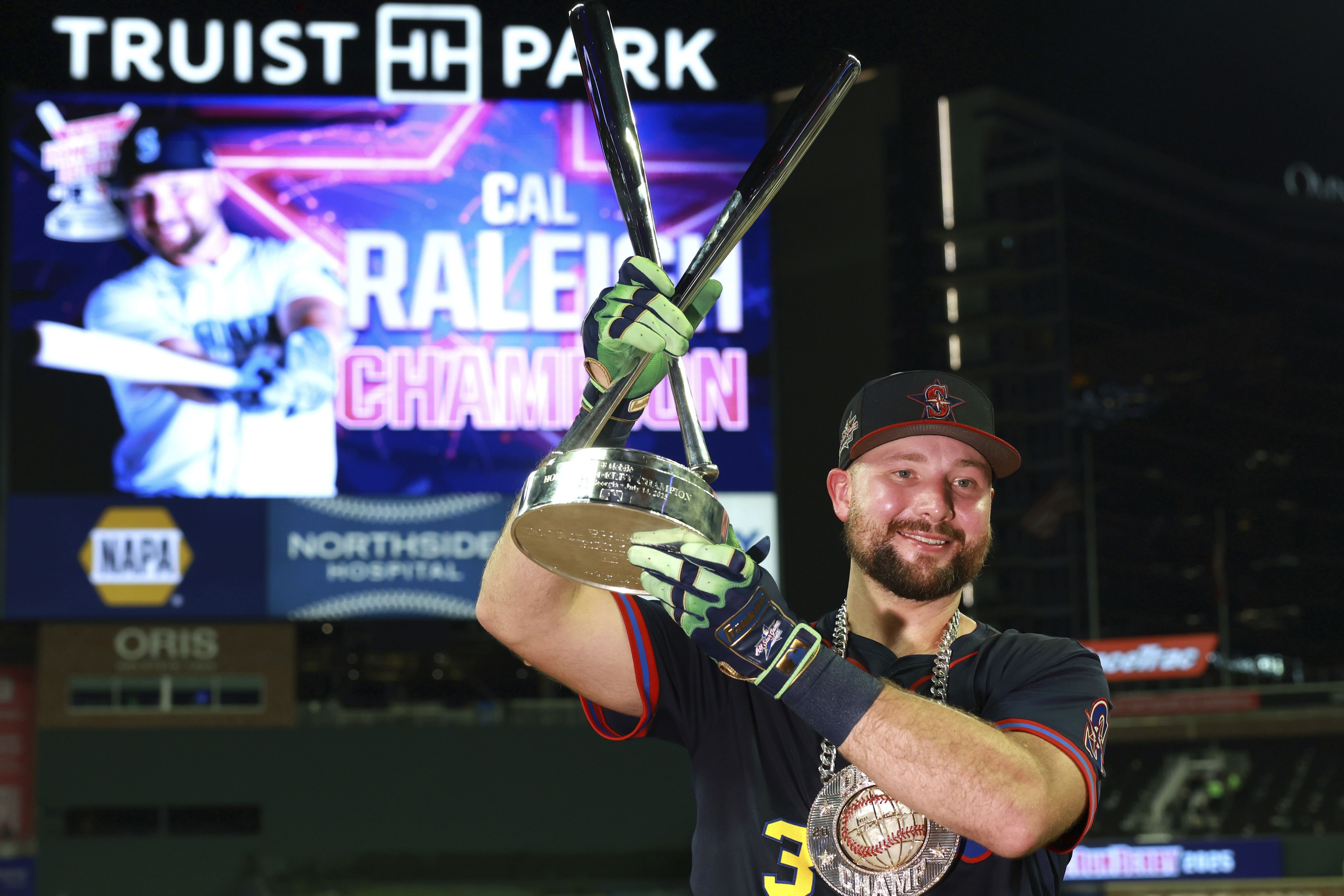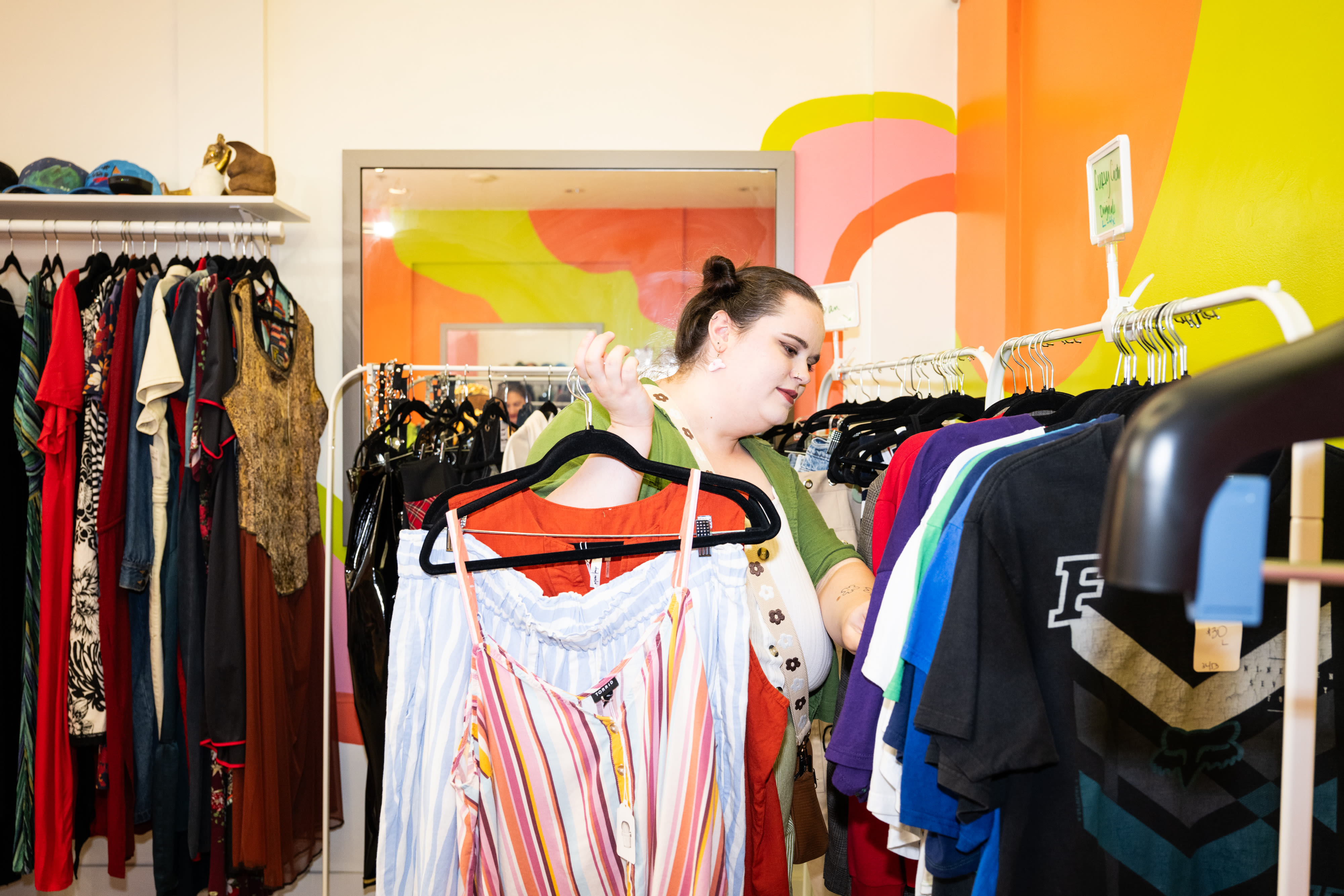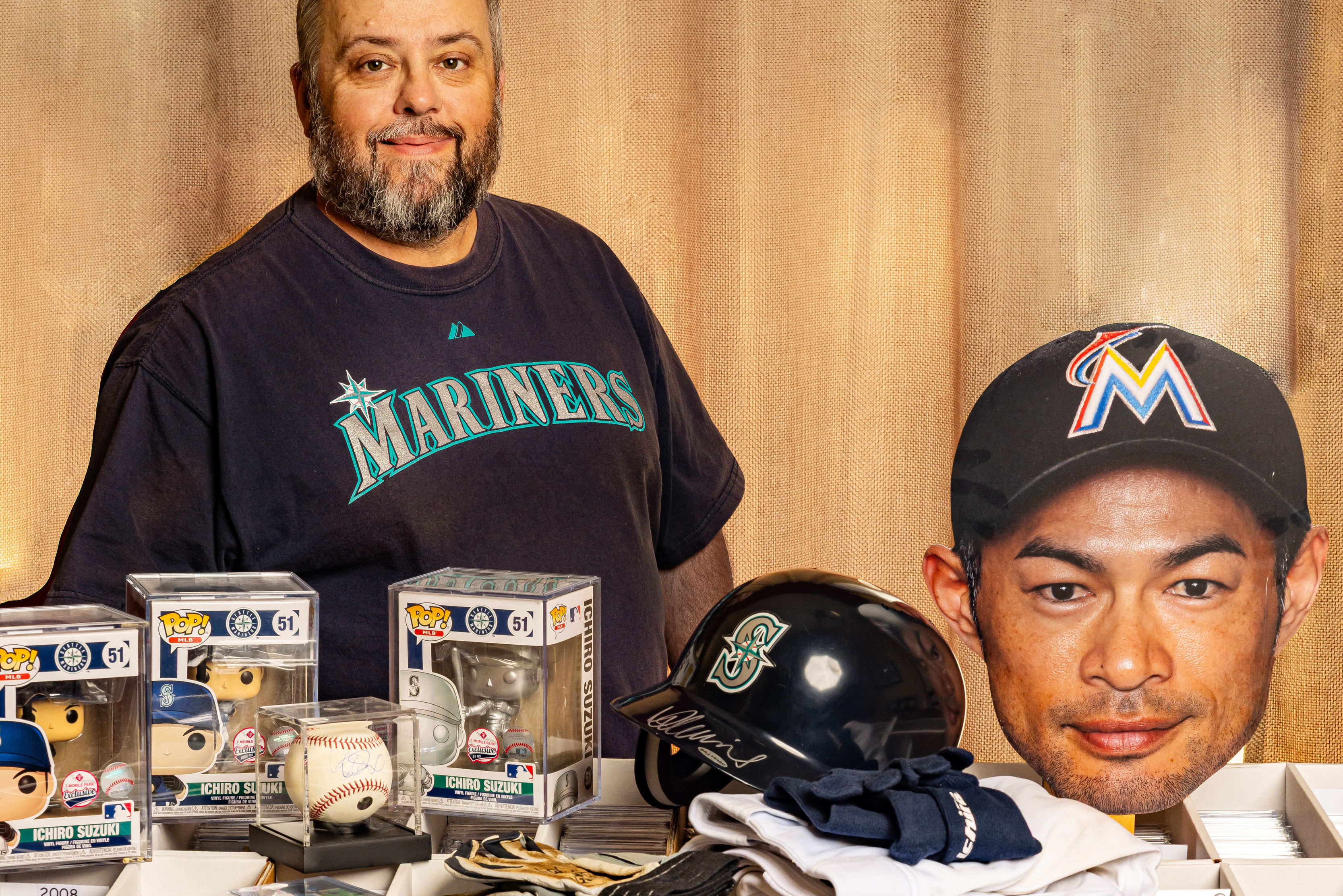Opinion
Craving a Local FDR
PubliCola asked a number of local personalities to answer the question: "How Has Seattle Changed?" It was an open-ended question. How has the city changed for better or worse; on a grand scale or on a personal scale; in the last 10 years; in the last 10 minutes? Today, Emmy-nominated writer and producer Feliks Banel weighs in.

The older I get, the harder it becomes to look objectively at how Seattle has changed in the 35 years or so that I’ve been paying attention. There’s absolutely no doubt that the city is different than it was. It’s more expensive, more crowded, and more popular as a destination for travelers and folks on the move. But I can’t unequivocally say if it’s gotten any better or any worse.
It’s tempting to recall my own glory years in the city in the mid-1980s and peg that time as the best era to be here. It was certainly cheap to live here. In 1987, I shared a decent house in Ravenna with three roommates, and we each paid rent of $157.50 a month.
My roommates were part of a core group of real friends—not just Facebook friends—with similar interests and outlooks, and the city was our playground. Local music flourished then—without the ultimately destructive national attention and third-party validation that would come a few years later. I was in a mediocre band (for that matter, everybody I knew was in a band—most not as mediocre as mine). Underage drinking was rampant at parties and at odd public places like the short-lived venue Soho in Belltown. I was 17 when I saw Minneapolis band Soul Asylum perform there in 1986. I bought a beer while an opening act called Soundgarden played their short set.
Back then, I was already obsessed with history (thanks to my older immigrant parents) and thought a lot about the Seattle of the recent past, with a certain longing for the things that had come and gone before my time. Chalk that up to having much older brothers and sisters who’d been here for years before me, and who made what I’d missed all seem so cool. The Seattle Pilots, the Stan Boreson program on KING TV, the World’s Fair, the 1965 earthquake, the 1962 Columbus Day Storm, the 1971 D.B. Cooper hijacking—in my mind, Seattle Before Me was an exotic wonderland. Seattle Present, circa 1975, was duller and flat by comparison.
But then I began to accumulate my own Seattle experiences. I had the good fortune of being at the Mariners game on June 1, 1979, the same day the Sonics won the NBA Championship against the Washington Bullets in Landover, Maryland. After the baseball game ended, my father and I took a walk from the Kingdome through the impromptu party in Pioneer Square (to the spot where we’d parked at the old Municipal Building).
While I vaguely remember the revelers who gathered to celebrate the Sonics’ victory, my most vivid memory of that night is of two winos on a park bench along Occidental. As one leaned forward and puked onto the ground between his shoes, the guy next to him patted the vomiting man gently on the back and said, “you’re gonna be okay, you’re gonna be okay.”
Three decades later, I’ve lived through enough local history now myself where I don’t have to pine anymore for that which came before. We survived Mt. St. Helens, the WTO, the Nisqually Quake and the Hanukkah Eve Storm. We cheered the ’95 Mariners and Superbowl Seahawks. We took personally Boeing's move to Chicago and then South Carolina, and the collapse of Washington Mutual. Though we hadn’t been to a game in years and hadn’t watched one on TV since the ’96 finals, we lamented when the Sonics left town.
It’s also true that since the glory years of the mid-1980s, my criteria for the city have changed and my perspective has shifted. With a family of my own, I’m not so worried anymore about missing a special event or cultural phenomenon (though I’d love to miss the next big quake). I’m more worried about our public schools. The elementary school in my Wallingford neighborhood is great; others I’ve heard about from friends elsewhere in the city are less so. I’m also worried generally about leadership of our public institutions, where shortages of funding combined with lack of vision make me nervous about the future.
That Seattle will continue to change is a given. But as it does, I find myself craving local FDR-style leaders who are capable of inspiring the citizenry via good, old-fashioned oratory. I’m not asking for totalitarian propaganda, but I do wish that local leaders would emerge who can consistently capture our attention in this social media-distracted world and tell us what our challenges are, what our strengths are, and how we’re going to all work together to persevere and thrive.
In a media landscape increasingly driven by personal narrative—on YouTube, Facebook, Twitter and countless blogs—our public agencies and our leaders can’t get us to pay attention unless they’re reacting to the latest shooting, scandal or budget cut. Can you recall the last time you heard a local leader give anything approaching a rousing address? I can’t.
Of course, a good speech has to be backed up with credible organizational skills and management expertise, and maybe this is too much to ask. Otherwise, you may as well just pat me on the back and tell me I’m going to be okay.
Feliks Banel is a consultant and Emmy-nominated writer/producer. He writes for Crosscut, hosts This NOT Just In for KUOW 94.9 FM; produces videos for HistoryMediaHistory; and is editor of the Aircheck Blog for the Western States Museum of Broadcasting. For seven years, he was deputy director of the Museum of History and Industry in Seattle.

The older I get, the harder it becomes to look objectively at how Seattle has changed in the 35 years or so that I’ve been paying attention. There’s absolutely no doubt that the city is different than it was. It’s more expensive, more crowded, and more popular as a destination for travelers and folks on the move. But I can’t unequivocally say if it’s gotten any better or any worse.
It’s tempting to recall my own glory years in the city in the mid-1980s and peg that time as the best era to be here. It was certainly cheap to live here. In 1987, I shared a decent house in Ravenna with three roommates, and we each paid rent of $157.50 a month.
My roommates were part of a core group of real friends—not just Facebook friends—with similar interests and outlooks, and the city was our playground. Local music flourished then—without the ultimately destructive national attention and third-party validation that would come a few years later. I was in a mediocre band (for that matter, everybody I knew was in a band—most not as mediocre as mine). Underage drinking was rampant at parties and at odd public places like the short-lived venue Soho in Belltown. I was 17 when I saw Minneapolis band Soul Asylum perform there in 1986. I bought a beer while an opening act called Soundgarden played their short set.
Back then, I was already obsessed with history (thanks to my older immigrant parents) and thought a lot about the Seattle of the recent past, with a certain longing for the things that had come and gone before my time. Chalk that up to having much older brothers and sisters who’d been here for years before me, and who made what I’d missed all seem so cool. The Seattle Pilots, the Stan Boreson program on KING TV, the World’s Fair, the 1965 earthquake, the 1962 Columbus Day Storm, the 1971 D.B. Cooper hijacking—in my mind, Seattle Before Me was an exotic wonderland. Seattle Present, circa 1975, was duller and flat by comparison.
But then I began to accumulate my own Seattle experiences. I had the good fortune of being at the Mariners game on June 1, 1979, the same day the Sonics won the NBA Championship against the Washington Bullets in Landover, Maryland. After the baseball game ended, my father and I took a walk from the Kingdome through the impromptu party in Pioneer Square (to the spot where we’d parked at the old Municipal Building).
While I vaguely remember the revelers who gathered to celebrate the Sonics’ victory, my most vivid memory of that night is of two winos on a park bench along Occidental. As one leaned forward and puked onto the ground between his shoes, the guy next to him patted the vomiting man gently on the back and said, “you’re gonna be okay, you’re gonna be okay.”
Three decades later, I’ve lived through enough local history now myself where I don’t have to pine anymore for that which came before. We survived Mt. St. Helens, the WTO, the Nisqually Quake and the Hanukkah Eve Storm. We cheered the ’95 Mariners and Superbowl Seahawks. We took personally Boeing's move to Chicago and then South Carolina, and the collapse of Washington Mutual. Though we hadn’t been to a game in years and hadn’t watched one on TV since the ’96 finals, we lamented when the Sonics left town.
It’s also true that since the glory years of the mid-1980s, my criteria for the city have changed and my perspective has shifted. With a family of my own, I’m not so worried anymore about missing a special event or cultural phenomenon (though I’d love to miss the next big quake). I’m more worried about our public schools. The elementary school in my Wallingford neighborhood is great; others I’ve heard about from friends elsewhere in the city are less so. I’m also worried generally about leadership of our public institutions, where shortages of funding combined with lack of vision make me nervous about the future.
That Seattle will continue to change is a given. But as it does, I find myself craving local FDR-style leaders who are capable of inspiring the citizenry via good, old-fashioned oratory. I’m not asking for totalitarian propaganda, but I do wish that local leaders would emerge who can consistently capture our attention in this social media-distracted world and tell us what our challenges are, what our strengths are, and how we’re going to all work together to persevere and thrive.
In a media landscape increasingly driven by personal narrative—on YouTube, Facebook, Twitter and countless blogs—our public agencies and our leaders can’t get us to pay attention unless they’re reacting to the latest shooting, scandal or budget cut. Can you recall the last time you heard a local leader give anything approaching a rousing address? I can’t.
Of course, a good speech has to be backed up with credible organizational skills and management expertise, and maybe this is too much to ask. Otherwise, you may as well just pat me on the back and tell me I’m going to be okay.
Feliks Banel is a consultant and Emmy-nominated writer/producer. He writes for Crosscut, hosts This NOT Just In for KUOW 94.9 FM; produces videos for HistoryMediaHistory; and is editor of the Aircheck Blog for the Western States Museum of Broadcasting. For seven years, he was deputy director of the Museum of History and Industry in Seattle.




